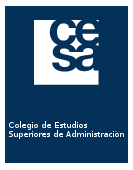What are boards for? Evidence from closely held firms in Colombia

Fecha
2019Citación
Metadatos
Mostrar el registro completo del ítemResumen
Using a large survey database on the corporate governance practices of privately held Colombian firms, we investigate why firms have boards, and how that choice and the balance of power among the board, controlling shareholders, and minority shareholders affect the trade-offs between control, liquidity, and growth and, ultimately, firm performance. We find that the probability of having a board increases with the number of shareholders and in family firms. When the preferences of controlling and minority shareholders diverge, as with respect to capital structure and dividend policy, boards support controlling shareholders’ decisions, thereby exacerbating the agency conflict between the two groups of shareholders.
